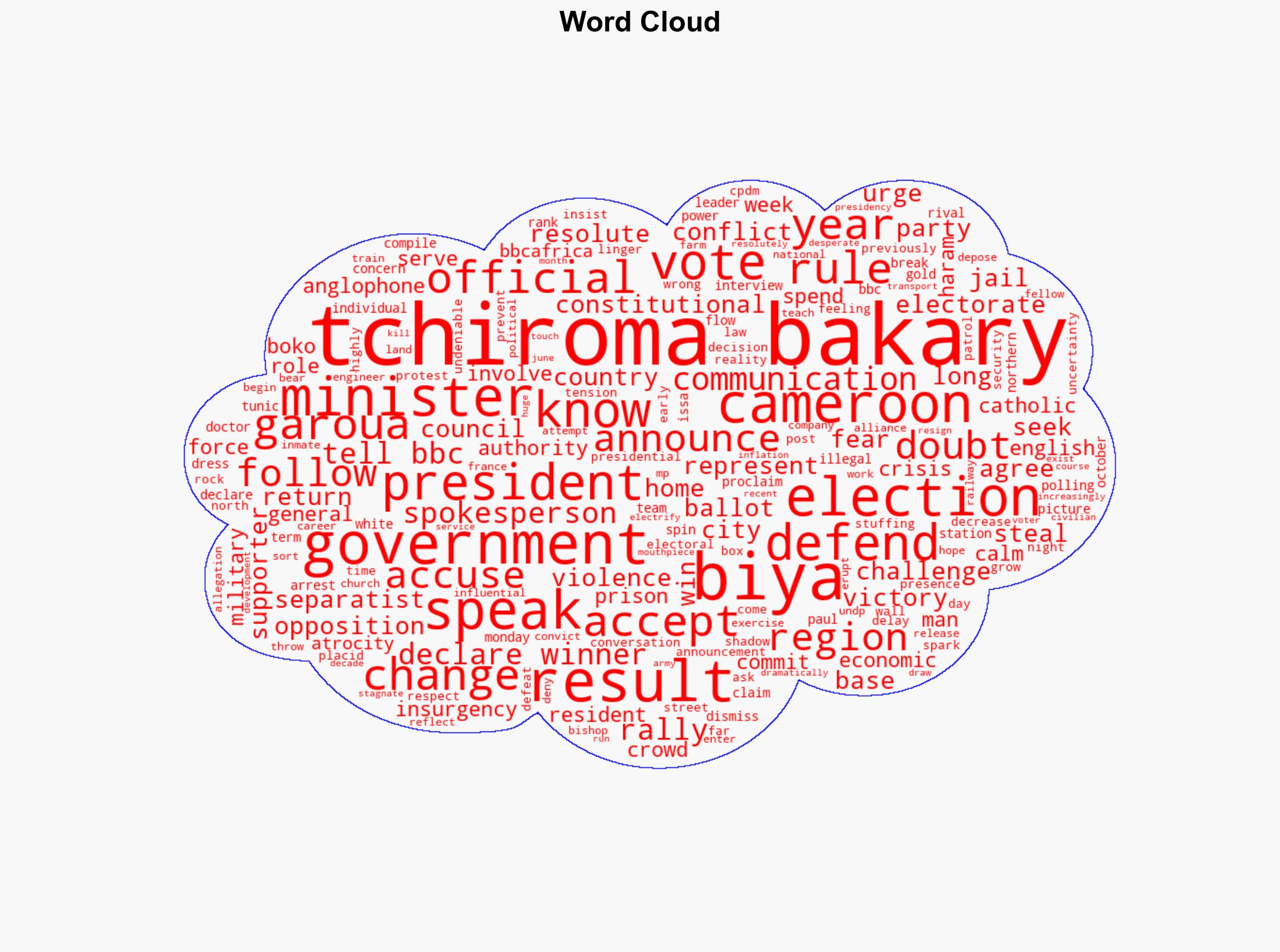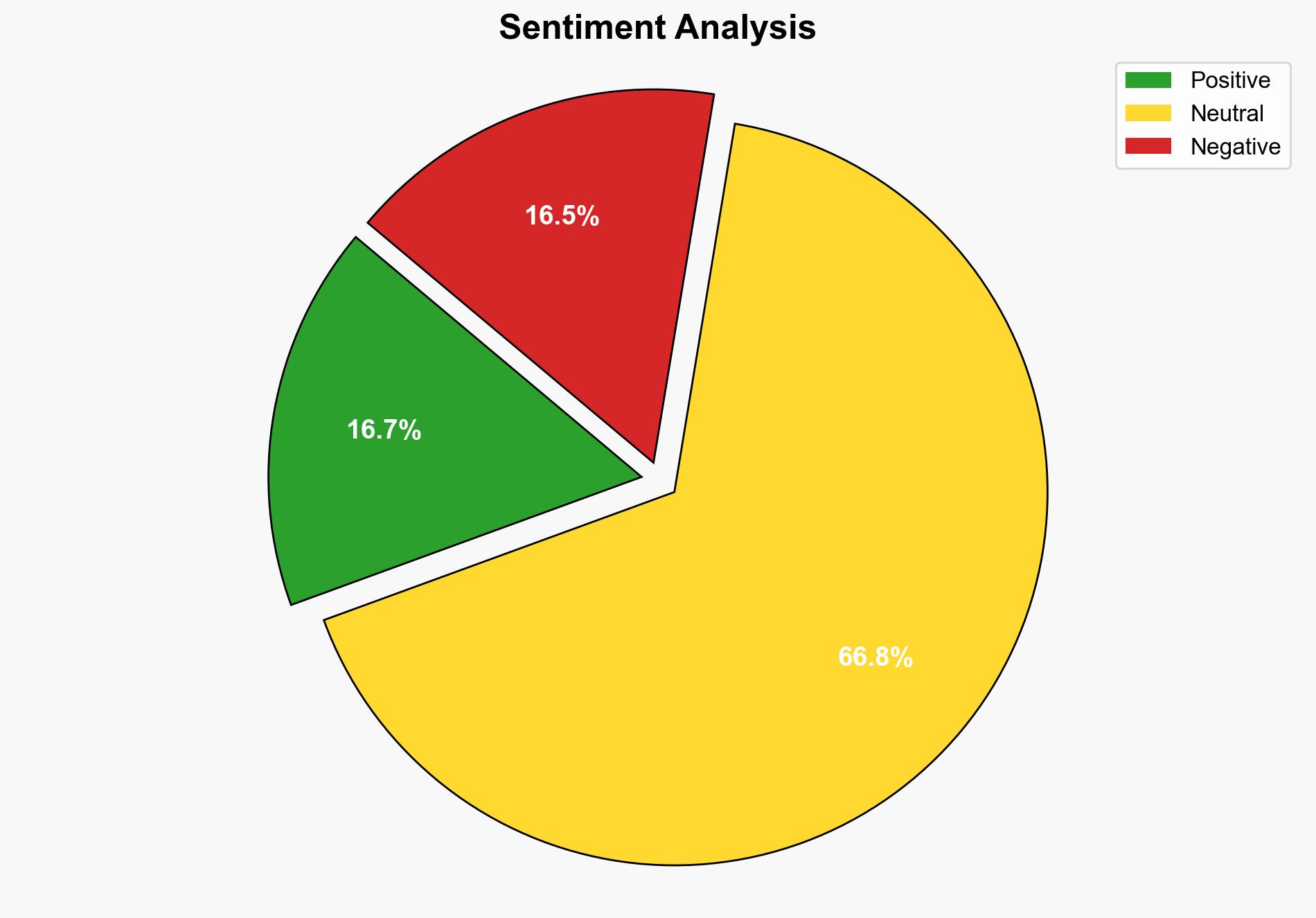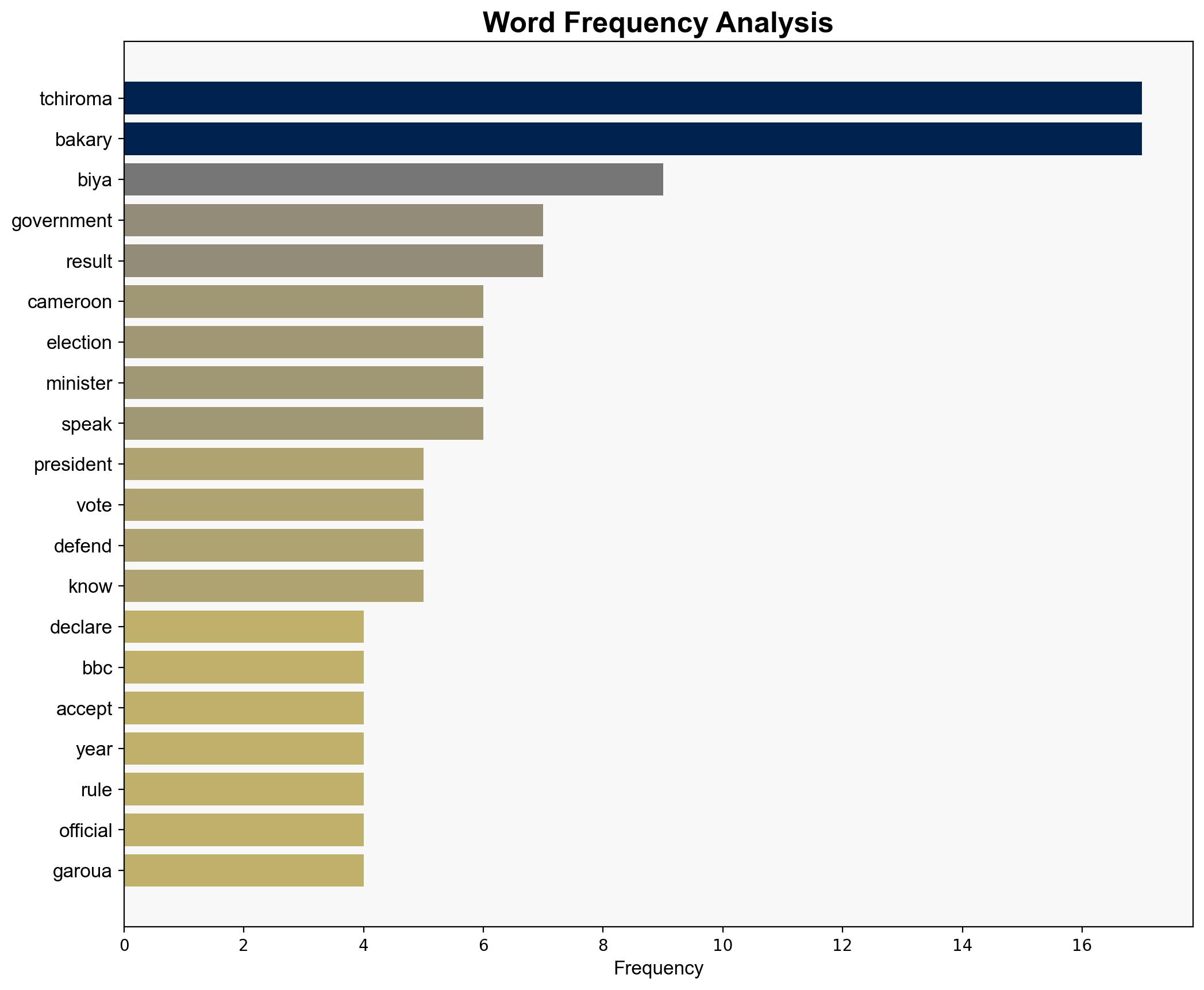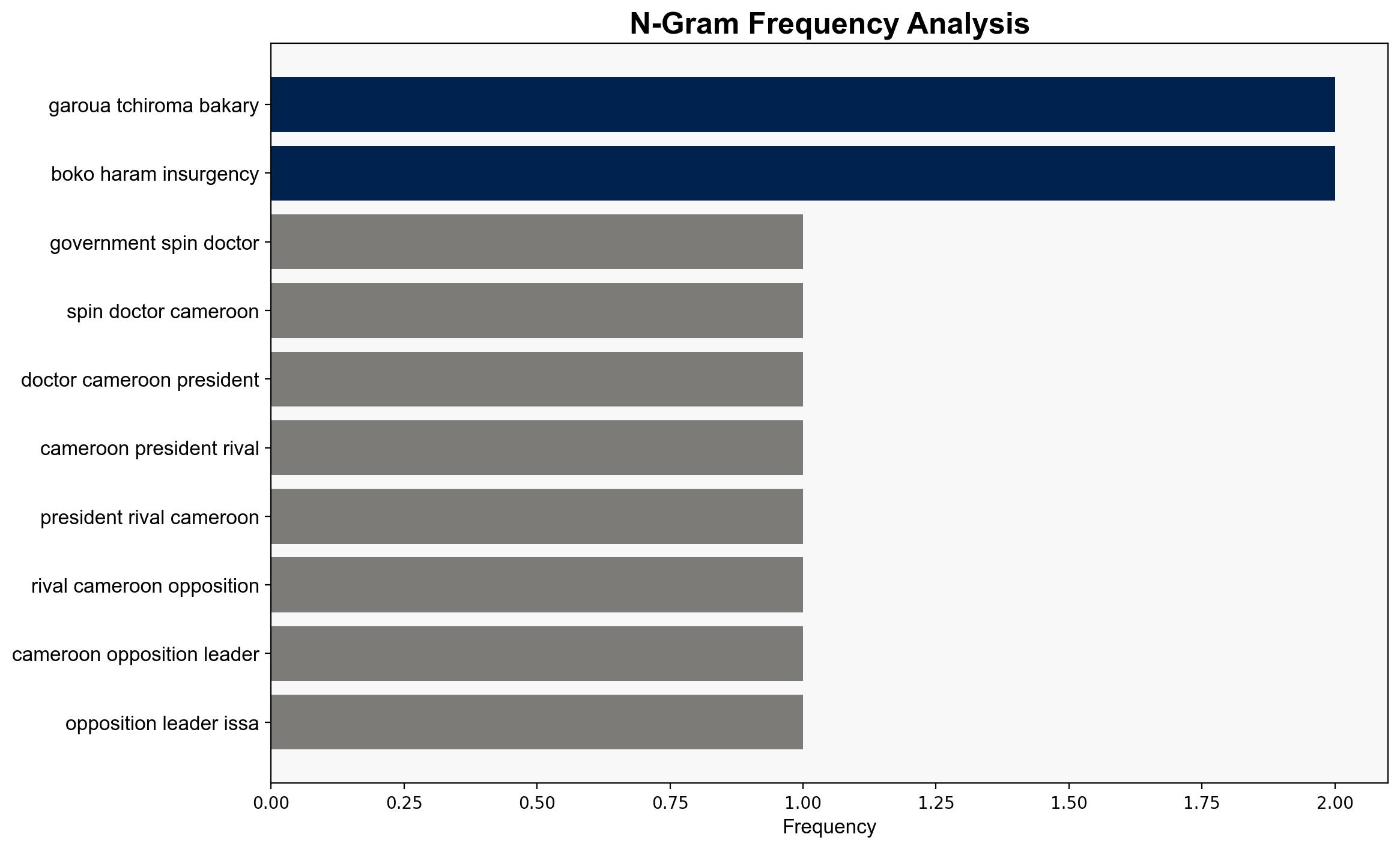We won’t accept a stolen vote Cameroon opposition leader tells BBC – BBC News
Published on: 2025-10-24
Intelligence Report: We won’t accept a stolen vote Cameroon opposition leader tells BBC – BBC News
1. BLUF (Bottom Line Up Front)
The most supported hypothesis is that Issa Tchiroma Bakary’s claims of election fraud are part of a strategic maneuver to galvanize support and challenge the legitimacy of President Paul Biya’s extended rule. Confidence level: Moderate. Recommended action: Monitor developments for signs of escalating civil unrest and potential international diplomatic interventions.
2. Competing Hypotheses
1. **Hypothesis A**: Issa Tchiroma Bakary’s claims of election fraud are accurate, and there is substantial evidence of electoral malpractice by the ruling party.
– **Supporting Evidence**: Tchiroma Bakary’s insistence on victory based on polling station results, historical grievances of marginalization in English-speaking regions, and the presence of international observers raising concerns.
2. **Hypothesis B**: Tchiroma Bakary’s claims are a political strategy to challenge Biya’s rule and gain political leverage, rather than being based on concrete evidence of fraud.
– **Supporting Evidence**: Tchiroma Bakary’s history as a government spokesperson and his recent dramatic shift in allegiance, the lack of immediate international condemnation of the election process, and the strategic timing of his claims to coincide with rising tensions.
3. Key Assumptions and Red Flags
– **Assumptions**: Hypothesis A assumes widespread electoral fraud without direct evidence from independent sources. Hypothesis B assumes Tchiroma Bakary’s motivations are primarily political rather than based on genuine electoral discrepancies.
– **Red Flags**: The absence of detailed evidence from independent observers, potential bias due to Tchiroma Bakary’s political history, and the lack of immediate international response to the claims.
4. Implications and Strategic Risks
– **Patterns**: Historical patterns of electoral disputes in Cameroon suggest potential for civil unrest and violence, especially given the existing tensions in anglophone regions.
– **Cascading Threats**: Escalation could lead to increased violence, further destabilization of the region, and potential international intervention.
– **Economic Risks**: Prolonged instability could deter foreign investment and exacerbate economic challenges like inflation and unemployment.
5. Recommendations and Outlook
- **Mitigation**: Engage with international bodies to facilitate dialogue between parties and ensure transparent investigation of election results.
- **Exploitation**: Leverage international diplomatic channels to pressure for electoral reforms and address grievances of marginalized regions.
- **Scenario Projections**:
– **Best Case**: Peaceful resolution through dialogue and electoral reforms.
– **Worst Case**: Escalation into widespread violence and international intervention.
– **Most Likely**: Continued political tension with sporadic unrest, leading to gradual international mediation efforts.
6. Key Individuals and Entities
– Issa Tchiroma Bakary
– Paul Biya
– Cameroon Constitutional Council
7. Thematic Tags
national security threats, electoral integrity, regional stability, political strategy




